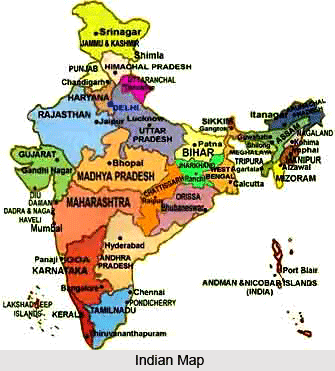 Divisions in Indian administration essentially refer to the bifurcation of responsibilities into three units- the executive, legislature and the judiciary. These three units comprise the entire system of governance in India. The form, structure, functions and the organs of government are related to the type of the political system adopted and the nature of the distribution of powers among the units of government and organs of the state. Each of the three organs of Government is responsible for a separate and independent area of administration. The executive is responsible for the overall governance and day-to-day administration of the country, the legislature sees to the making of laws and policies and the judiciary is responsible for the legal aspects of governance.
Divisions in Indian administration essentially refer to the bifurcation of responsibilities into three units- the executive, legislature and the judiciary. These three units comprise the entire system of governance in India. The form, structure, functions and the organs of government are related to the type of the political system adopted and the nature of the distribution of powers among the units of government and organs of the state. Each of the three organs of Government is responsible for a separate and independent area of administration. The executive is responsible for the overall governance and day-to-day administration of the country, the legislature sees to the making of laws and policies and the judiciary is responsible for the legal aspects of governance.
Executive in Indian Administration
The executive power of the country is vested in the Indian President. The Constitution of India vests all executive powers in the President who exercises power over his subsidiary officers and is aided and advised in the exercise of his functions by the Indian Prime Minister and the Union Council of ministers. However, though he is the nominal head of the country, real executive power is exercised by the Prime Minister who is aided and advised by his Cabinet. All matters pertaining to the governance of the country are executed by the executive branch of the country. Among the various areas of responsibility which the executive is responsible for a re foreign affairs, defence, home affairs, post and telegraph, railways, taxes, banking and currency etc.
Legislature in Indian Administration
The Legislative powers of the government are exercised by the Government of India through the Parliament. The Indian Parliament is bicameral in nature, meaning that it is divided into two houses, an upper house and a lower house. The upper house is the council of states or the Rajya Sabha and the lower house is the house of the people called the Lok Sabha. The most important function of the Indian legislature is naturally the matter of legislation. The making of laws on a variety of subjects, making, recommending and passing or negating bills, financial powers by means of money bills, amendment of the Constitution, discussion on treaties and international matters area among some of the functions performed by the Indian legislature. The legislature also exercises a certain check over the executive as the executive is answerable to the parliament at all times.
Judiciary in Indian Administration
The Constitution of India has provided for an integrated and unified judiciary for the whole country. There organisation of the Indian judiciary is such that at the very top is the Supreme Court of India, in between there are a number of District Courts, Munsiff Courts and High Courts of India and right at the very base are the Nyaya Panchayats. The subject matter which the courts deal with are divided into two - Civil and Criminal. The main function of the judiciary is to see to the implementation of laws, punish offences against the state and citizens and the dispensation of justice. Great care has been taken to ensure the independence of the judiciary and maintain and impartial law system.




















